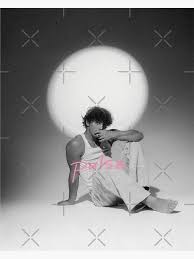Column: Instrospective analysis of the police in rap music
March 31, 2016
Police in rap music may not be what you think they are from the surface.
They may represent thought controllers & those that attempt to “arrest,” or shut down, ideologies that try to stop rap artists from expressing themselves and using music as a medium.
They attempt to “arrest” their freedom because the “police” may feel upset or uncomfortable by their views and the thought police’s immediate reaction is to try and quiet them in order to stop themselves from expressing and raising questions.
This is a natural reaction.
Nobody wants to question what they’ve been working towards for years, and I don’t blame them for acting that way.
But this is what’s great about America; metaphors like these can be released in song format, then looked upon years after initial hype dies down and analyzed for what they are.
“Alright” by Kendrick Lamar is the perfect example of this.
Taken from the edited version of “Alright”, Kendrick Lamar, seemingly out of nowhere from first glance, expresses his hatred towards police:
When you know, we’ve been hurt, been down before
When our pride was low, looking at the world like “where do we go?”
And we hate po-po,
Wanna kill us dead in the streets for sure,
I’m at the preacher’s door,
My knees getting weak & my gun might blow,
But we gon’ be alright.
If you take the bolded section that focuses on police out, nothing about the song changes. It still has the same message, which is a message of hope in hopeless surroundings.





Johnny G • Jun 2, 2016 at 2:41 pm
how could this be introspective unless the author is the manifestation of all rap music and rap as a genre? is this what the author claims to be?
Joseph Schultz • Jun 6, 2016 at 10:47 pm
I didn’t name it, my editors did. Still salty about it, doesn’t do it justice in the slightest
Julia Satterthwaite • Jun 7, 2016 at 11:11 am
Joe – You named this yourself. The word introspective was definitely your choice. Take ownership of your own decisions.